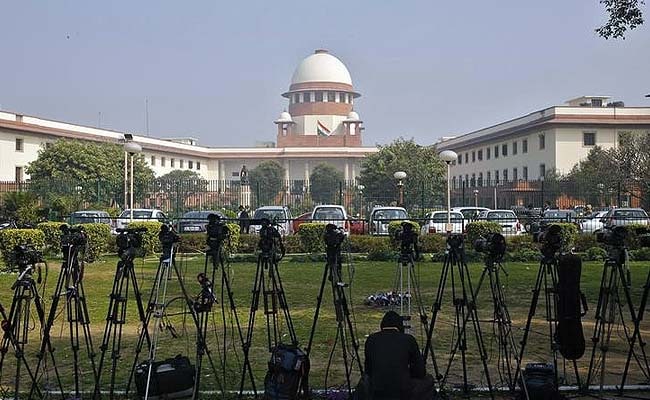
Days after the government notified a commission that changes the way judges are appointed in India, a constitutional bench deciding on its validity may have to be reconstituted. One of the five judges on the bench, Justice Anil Dave, recused himself today, as he is part of the new National Judicial Appointments Commission.
Justice Dave withdrew from the case after petitioners raised questions about conflict of interest. Senior lawyer Fali Nariman, representing one of the petitioners, said that Justice Dave must decide whether he still wants to lead the bench hearing the case, since he is also a member of the appointments commission that has been challenged.
The government on Monday notified the commission, a team of six members that includes the Chief Justice of India, the two most senior judges of the Supreme Court, two eminent persons, and the Law Minister. The two eminent Indians will be chosen by the Chief Justice, the PM and the leader of the largest opposition party in the Lok Sabha.
For nearly two decades, judges have been appointed or transferred by a collegium - a group of five senior judges.
The move to notify the commission while the Supreme Court is still hearing a petition challenging its validity was seen by many as confrontational.
The new law has been challenged by a cluster of petitioners including advocates. Mr Nariman says the new Commission is against the basic structure of the Constitution and the independence of the judiciary. The government has said that parliament's right to decide laws cannot be impeded upon in court.
After Justice Dave's withdrawal, the Chief Justice of India may have to reconstitute the bench. "Preposterous,'' said Attorney General Mukul Rohtagi, reacting to the development.
"Justice Dave can continue to hear the case. Several decisions are taken on the administrative side by Supreme Court judges and the same judges heard and decided such issues on the judicial side. So one can't say judges would be biased," he added.
Track Latest News Live on NDTV.com and get news updates from India and around the world

